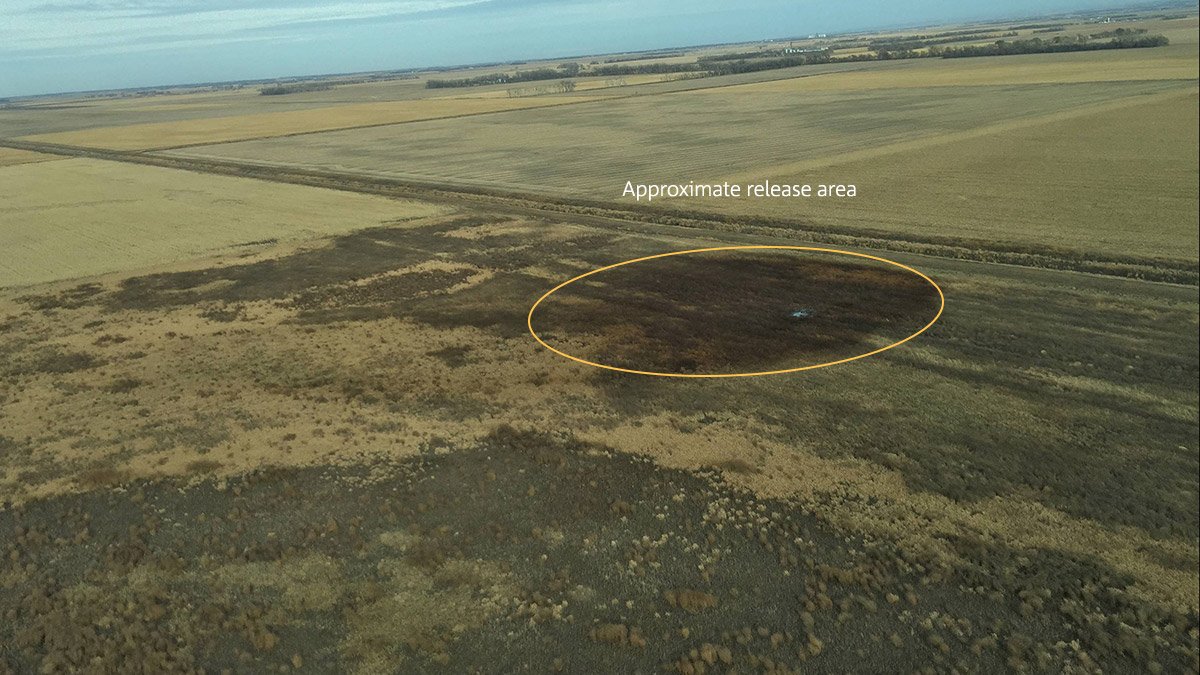CNN: Keystone Pipeline leaks 210,000 gallons of oil in South Dakota
By Mayra Cuevas and Steve Almasy, CNN
(CNN)A total of 210,000 gallons of oil leaked Thursday from the Keystone Pipeline in Marshall County, South Dakota, the pipeline’s operator, TransCanada, said.
Crews shut down the pipeline Thursday morning and officials are investigating the cause of the leak, which occurred about 3 miles southeast of the town of Amherst, said Brian Walsh, a spokesman for the state’s Department of Environment and Natural Resources.
This is the largest Keystone oil spill to date in South Dakota, Walsh said. In April 2016, there was a 400-barrel release — or 16,800 gallons — with the majority of the oil cleanup completed in two months, Walsh said. About 5,000 barrels of oil spilled Thursday.
“It is a below-ground pipeline but some oil has surfaced above ground to the grass,” Walsh said. “It will be a few days until they can excavate and get in borings to see if there is groundwater contamination.”

There were no initial reports of the oil spill affecting waterways, water systems or wildlife, he said. TransCanada said it was working with state and federal agencies. “The safety of the public and environment are our top priorities and we will continue to provide updates as they become available,” the company said.
The sections of pipeline affected stretch from Hardisty, Alberta, to Cushing, Oklahoma, and to Wood River, Illinois, the company said.
The spill occurred in the same county as part of the Lake Traverse Reservation.
“We are concerned that the oil spill is close to our treaty land, but we are trying to stay positive that they are getting the spill contained and that they will share any environmental assessments with the tribal agency,” said Dave Flute, tribal chairman of the Sisseton Wahpeton Oyate.
Environmental activist group Greenpeace said the spill shows another section of the pipeline in Nebraska should not be approved.
“The Nebraska Public Service Commission needs to take a close look at this spill,” said Rachel Rye Butler of Greenpeace. “A permit approval allowing Canadian oil company TransCanada to build Keystone XL is a thumbs-up to likely spills in the future.”
New Keystone XL has been approved
The Keystone Pipeline system stretches more than 2,600 miles from Hardisty east into Manitoba and then down to Texas, according to TransCanada. The pipeline transports crude oil from Canada.
The proposed Keystone XL Pipeline, which would stretch from Hardisty down to Steele City, Nebraska, would complete the entire proposed system by cutting through Montana and South Dakota.
In March, the Trump administration officially issued a permit that approved construction of the Keystone XL Pipeline.
The approval followed years of intense debate over the pipeline amid hefty opposition from environmental groups, who argued the pipeline supports the extraction of crude oil from oil sands, which pumps about 17% more greenhouse gases than standard crude oil extraction. Environmentalists also opposed the pipeline because it would cut across the Ogallala Aquifer, one of the world’s largest underground deposits of fresh water.
Tar sands oil is much thicker and stickier than traditional oil, significantly complicating cleanup efforts. The fact it’s thicker also means it needs to be combined with other hazardous materials to allow it to be transported in pipelines.
Native American groups have argued the pipeline would cut across their sovereign lands.
Trump said the new pipeline will be a big win for American workers, but critics say it won’t be, because most of the jobs would be temporary.
Drop in pressure was sign of leak
TransCanada said Thursday that the section of Keystone pipe that was leaking was isolated within 15 minutes after a drop in pressure was detected.
According to the South Dakota Department of Environment and Natural Resources’ website, this is the third pipeline spill in the state this year. Another came in April when about 84 gallons of crude oil leaked from the controversial Dakota Access Pipeline in Spink County.
That pipeline, which runs through both Dakotas and two other states, drew fierce resistance from the Standing Rock Sioux tribe in North Dakota, the tribe’s allies and environmentalists.
Opposition to the pipeline sparked months long protests, with as many as 10,000 people participating during the peak of the demonstrations. Clashes with police at the protests turned violent at times, with one woman nearly losing her arm after an explosion last November.
CNN’s Eric Levenson contributed to this report.
